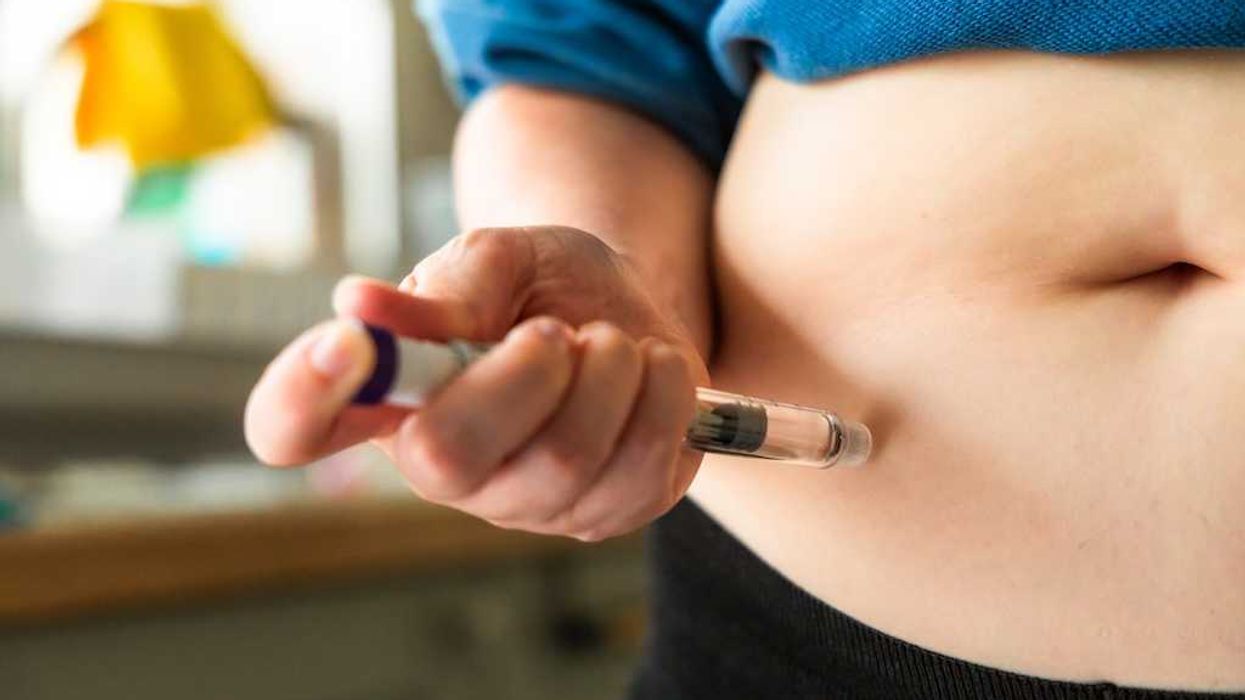
© 2026 Blaze Media LLC. All rights reserved.
Study Warns Grapefruit Can Cause 'Sudden Death' When Taken With Certain Drugs
November 28, 2012
“It’s hard to avoid putting a drug out on the market that is not affected by grapefruit juice."
 (Image: Shutterstock.com.)
(Image: Shutterstock.com.)
If you're on prescription medication, you might want to think twice before going on the grapefruit diet as a way to slim down after the Thanksgiving holiday.
It has been known for two decades that the citrus fruit can interact in harmful ways with medications, but a recent study observes a steady increase to the lengthy list of drugs that can have deadly consequences when taken with grapefruit.
According to research conducted by those at the Lawson Health Institute Research Center in London, Ontario, although the number of prescription drugs with serious side-effects seen after grapefruit consumption have gone up, many physicians writing the prescriptions seem to be unaware.
"Many of the drugs that interact with grapefruit are highly prescribed and are essential for the treatment of important or common medical conditions," Dr. David Bailey, Lawson Health Research Institute, London, Ont., wrote with coauthors. "Recently, however, a disturbing trend has been seen. Between 2008 and 2012, the number of medications with the potential to interact with grapefruit and cause serious adverse effects…has increased from 17 to 43, representing an average rate of increase exceeding 6 drugs per year. This increase is a result of the introduction of new chemical entities and formulations."
The study published by the Canadian Medical Association Journal stated that more than 85 drugs are known to interact with grapefruit adversely, as well as some other citrus fruits like Seville oranges, limes and pomelos. Bailey told NBC News that 13 of these drugs might cause "sudden death."
Other adverse effects include acute kidney failure, respiratory failure, gastrointestinal bleeding, bone marrow suppression in immunocompromised people and renal toxicity.
Potentially harmful reactions occur when the furanocoumarins in the fruits interact with CYP3A4 enzyme, which helps metabolize drugs in the body. The enzyme is known to inactivate the effects of 50 percent of all medication. NBC reported that because of this doctors prescribe dosages accordingly. The furanocoumarins though will inhibit this enzyme, which can allow the drug to build up in the patient's body.
Even a small amount of grapefruit consumption is effective at inhibiting this enzyme, which could then lead to dangerous medication concentrations in the body.
NBC News reported Bailey calling their findings "disturbing."
“It’s hard to avoid putting a drug out on the market that is not affected by grapefruit juice," Bailey said, according to NBC.
He said that patients and doctors also don't seem to take seriously the warnings put on medication labels regarding these potential side effects.
Those with the greatest risk are 45 and older, because they are prescribed the most drugs and are more likely to purchase grapefruit products.
NBC noted Bailey saying patients do have a citrus alternative though. Traditional orange juice doesn't contain the compound that can lead to such consequences.
Find a full list of medications for which grapefruit could interact with the enzyme and therefore lead to harmful drug concentrations here.
Featured image via Shutterstock.com.
Want to leave a tip?
We answer to you. Help keep our content free of advertisers and big tech censorship by leaving a tip today.
Want to join the conversation?
Already a subscriber?
more stories
Sign up for the Blaze newsletter
By signing up, you agree to our Privacy Policy and Terms of Use, and agree to receive content that may sometimes include advertisements. You may opt out at any time.
Related Content
© 2026 Blaze Media LLC. All rights reserved.
Get the stories that matter most delivered directly to your inbox.
By signing up, you agree to our Privacy Policy and Terms of Use, and agree to receive content that may sometimes include advertisements. You may opt out at any time.






